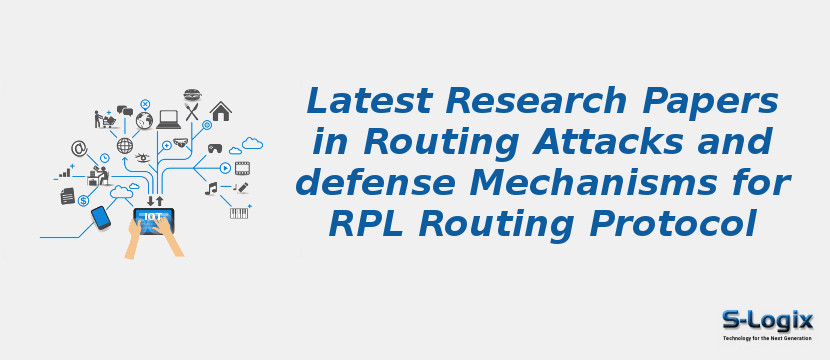Research papers in routing attacks and defense mechanisms for the RPL (Routing Protocol for Low-Power and Lossy Networks) extensively explore the vulnerabilities, challenges, and potential solutions in securing communication within IoT ecosystems. Since RPL was designed with the primary goal of achieving energy efficiency and scalability rather than robust security, attackers can exploit its weaknesses to launch devastating routing attacks such as sinkhole, wormhole, Sybil, rank manipulation, blackhole, selective forwarding, and denial-of-service. These attacks can lead to severe consequences like packet loss, increased latency, energy depletion, route disruption, and even complete network failure. To counter these issues, researchers have proposed a diverse set of defense mechanisms, including cryptographic-based authentication schemes, trust and reputation systems, IDS (Intrusion Detection Systems), anomaly detection, machine learning and deep learning-based classifiers, and game-theory approaches. Lightweight solutions that fit resource-constrained sensor nodes are a major focus, ensuring security without compromising battery life or processing capabilities. Recent works emphasize hybrid security frameworks combining proactive defenses (such as secure key management and parent selection strategies) with reactive mechanisms (such as misbehavior detection and node isolation) to improve resilience. Furthermore, there is growing interest in distributed and decentralized approaches, like blockchain-enabled RPL and federated learning-based IDS, which enhance trust and privacy while reducing reliance on centralized control. Comparative studies highlight that no single method can fully mitigate all attack vectors; thus, multi-layered solutions and context-aware mechanisms are being actively explored. Overall, the body of literature reveals that securing RPL against routing attacks is an evolving challenge, and integrating intelligent, adaptive, and lightweight defense strategies remains a key research direction for achieving robust, trustworthy IoT networks.
